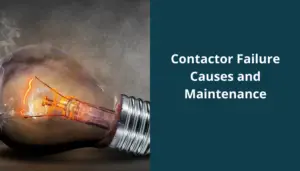Capacitors play a crucial role in various electronic systems, providing energy storage, filtering, and timing functions.
However, subjecting capacitors to overvoltage conditions can have detrimental effects on their performance, longevity, and safety. Overvoltage on capacitors can lead to dielectric breakdown, insulation failure, capacitor damage, reduced lifespan, and altered capacitance and performance.
In this article, we will explore the potential consequences of overvoltage on capacitors, highlighting the risks involved and discussing strategies to mitigate them.
Table of Contents
Understanding Overvoltage
Overvoltage refers to the application of a voltage that exceeds the rated voltage of a capacitor.
This can occur due to voltage transients, power surges, improper circuit design, or component failure.
When a capacitor is exposed to overvoltage, several adverse effects can occur.
Dielectric Breakdown and Insulation Failure
One of the primary risks associated with overvoltage is dielectric breakdown. Capacitors utilize dielectric materials to separate their conductive plates and store electrical energy.
However, when the electric field across the dielectric surpasses its breakdown strength, the dielectric can fail, leading to a catastrophic breakdown. This not only damages the capacitor but may also pose safety hazards.
Overvoltage can also cause insulation failure. The insulation materials surrounding the capacitor can break down under excessive voltage stress, compromising the isolation between the capacitor’s terminals.
This can result in short circuits, malfunctions, or even damage to other components within the system.
Capacitor Damage and Reduced Lifespan
Subjecting capacitors to overvoltage increases the risk of physical damage to the component itself.
Excessive voltage can cause the capacitor‘s casing to crack or rupture, leading to loss of capacitance or complete failure.
These mechanical damages not only render the capacitor ineffective but can also introduce electrical instabilities into the circuit.
Moreover, overvoltage significantly reduces the lifespan of capacitors. The stress imposed on the dielectric material and other internal components accelerates their degradation, increasing the likelihood of premature failure.
This can result in unexpected system downtime, costly repairs, or even safety hazards.
Altered Capacitance and Performance
Overvoltage can alter the capacitance value of a capacitor. The electrical properties of the dielectric material can change under excessive voltage, leading to deviations from the specified capacitance value.
This, in turn, affects the performance of circuits relying on the capacitor for accurate timing, filtering, or energy storage. Such deviations can introduce errors, instability, or inefficiency into electronic systems.
Mitigating Overvoltage Risks
To mitigate the risks associated with overvoltage, it is crucial to adhere to the capacitor’s voltage ratings and consider the specific operating conditions. Here are some strategies for effective mitigation:
- Select capacitors with appropriate voltage ratings: Ensure that the capacitors used in a circuit have voltage ratings that exceed the maximum expected voltage. This provides a safety margin and helps prevent overvoltage-related issues.
- Employ protective measures: Implement protective devices like voltage clamping circuits or transient voltage suppressors to limit the voltage applied to the capacitors. These devices divert excess voltage away from the capacitor, safeguarding it from overvoltage events.
- Consider voltage transients and power supply stability: Assess the potential for voltage transients, ripple voltage, or voltage spikes in the circuit. Incorporate appropriate filtering and stabilization techniques to mitigate voltage fluctuations that may affect capacitors.
- Proper circuit design and maintenance: Ensure that circuits are designed correctly, taking into account the voltage requirements and limitations of the capacitors. Regular maintenance and inspections can help identify and address potential overvoltage risks before they cause significant damage.
Conclusion:
Overvoltage poses significant risks to capacitors, including dielectric breakdown, insulation failure, physical damage, reduced lifespan, and altered performance.
Understanding these risks and implementing appropriate mitigation strategies are essential for ensuring the reliable and safe operation of electronic systems.
By selecting capacitors with adequate voltage ratings, employing protective measures, and considering circuit design and maintenance, the detrimental effects of overvoltage on capacitors can be minimized, enhancing system performance and longevity.
Don’t Leave Empty-Handed!
Install my Free Android App on Google Play:
Electrical Cables Most Common Tables “Cables Tables”
And, my Electrical Calculations App “Fast Electrical Calculator”
Discover more great content by subscribing to My channel
Looking to stay ahead of the game in the world of electrical engineering? Subscribe to my YouTube channel and gain access to exclusive content you won’t find anywhere else!
The staff I recommend
(Amazon Affiliate Links to products I believe are high quality):
- Economy 120 Volt/60Hz AC Power Source – Step-Down Voltage & Frequency Converters 1800W
- UNI-T Digital Multimeter Tester UT139C
- 50-Amp Extension Cord for RV “100ft”
- Voltage Stabilizer 110/220v
- Hair Dryer “best selling“
- TOSHIBA EM131A5C-BS Countertop Microwave Ovens
Disclaimer: This contains affiliate links to Amazon products. I may earn a commission for purchases made through these links.



